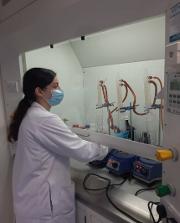

Whom we want to benefit:
- Patients suffering from the metabolic syndrome, by providing new nutraceuticals to improve their condition.
- Coastal societies by adding new business models and value chains.
- The environment by using marine raw materials more efficiently.